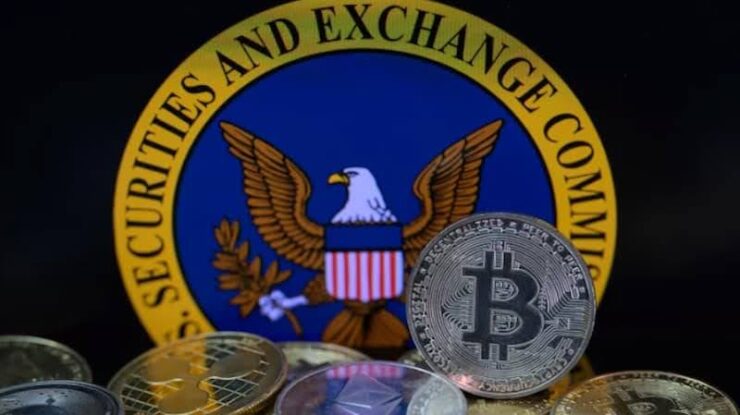The regulatory landscape for cryptocurrency is transforming, and the U.S. Securities and Exchange Commission (SEC) is at the heart of it.
For years, the SEC has been a major obstacle for the crypto industry, launching lawsuits, enforcing strict regulations, and maintaining an aggressive stance on digital assets.
However, recent developments suggest a shift in approach, creating both uncertainty and potential for long-term growth.
Matthias, a crypto expert, has been closely monitoring these changes and believes they mark a significant turning point for the industry.
Impact of SEC’s Crackdown on the Market
For a long time, the SEC took a hard stance against cryptocurrencies, treating many tokens as unregistered securities and taking legal action against companies that issued or traded them.
This was evident in the XRP case, where the SEC argued that Ripple’s sale of XRP constituted an unregistered securities offering.
This lawsuit dragged on for years and sent shockwaves through the crypto market, making investors wary of regulatory risks.
Beyond Ripple, other major projects, including Binance and Coinbase, faced legal scrutiny. The SEC’s aggressive approach caused many crypto firms to reconsider their operations in the U.S., leading to concerns about innovation being driven offshore. Matthias remarked,
“The SEC wasn’t just enforcing regulations—it was actively discouraging crypto adoption by creating fear and uncertainty in the market.”

Is the SEC Backing Down? Signs of a Major Shift
While the SEC’s position seemed unwavering in previous years, the tides appear to be changing. In recent months, the commission has either dropped or delayed several lawsuits against crypto firms, leading many to speculate that a policy shift is underway.
One of the biggest indicators was the SEC’s softened stance on Ethereum, as speculation grows about an eventual Ethereum ETF approval.
Another key development was the approval of spot Bitcoin ETFs, a previously considered unlikely move under SEC Chair Gary Gensler. The approval signaled an acceptance of crypto as a legitimate asset class, paving the way for broader institutional involvement. Matthias observed,
“We’re witnessing something unprecedented—the SEC is no longer just attacking crypto, it’s starting to acknowledge its place in the financial system.”
What Does This Mean for Crypto’s Future
A shift in the SEC’s stance does not necessarily mean the industry is free from regulatory scrutiny but indicates a move toward clearer guidelines.
Regulatory uncertainty has long been one of the biggest barriers to mainstream adoption. If the SEC provides a structured framework for compliance, it could open the floodgates for institutional investors.
Moreover, a less adversarial SEC could lead to faster approval of ETFs beyond Bitcoin, with industry insiders speculating that Solana and XRP could be next.
The potential for clearer regulations also means that crypto firms will have a better understanding of how to operate within legal boundaries, reducing the risk of unexpected lawsuits.
Matthias summarized the situation by saying,
“Regulation isn’t inherently bad—it’s the uncertainty that kills innovation. If the SEC finally sets clear rules, we could see a new wave of growth in crypto.”
New Era for Crypto Regulation
While the SEC’s historical stance has been cautious and restricted, recent moves suggest a softening of its position.
Whether this is due to political pressure, court rulings, or shifting public sentiment remains to be seen. However, the key takeaway for investors and industry participants is that regulation is no longer just a threat—it could also be an opportunity.
As the crypto industry waits for further developments, one thing is clear: the days of unregulated digital assets are numbered, but a structured and transparent regulatory framework could be the key to unlocking the next phase of crypto adoption.





